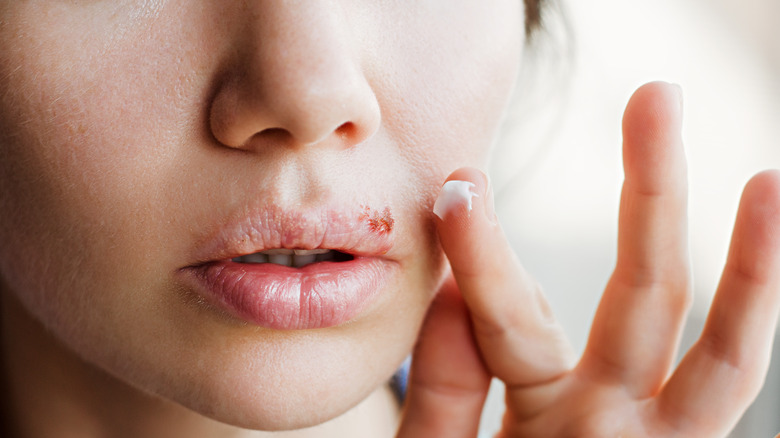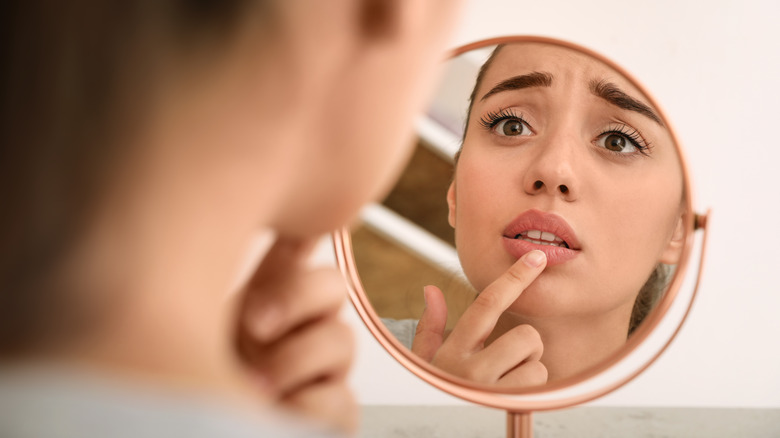Why You Should Never Pop A Cold Sore
Feeling the familiar tingle of an oncoming cold sore may fill you with dread concerning the discomfort and pain that's inevitably going to follow. Also called fever blisters, cold sores can be accompanied by symptoms that include fever, headache, sore muscles, and sometimes painful gums and a sore throat, according to Mayo Clinic.
Caused by a viral infection, cold sores typically present in three unique stages, notes Mayo Clinic. The first sensation is the leering tingling, itching feeling around the lip, followed by the appearance of small fluid-filled blisters, and culminating with oozing and eventual crusting or scabbing of the area. While the blisters may ooze by themselves, there are considerable risks to trying to pop them yourself.
Cold sores are typically caused by one of two herpes viruses, either herpes simplex virus type 1 (HSV-1) or herpes simplex virus type 2 (HSV-2), with the former being the most prevalent, according to Mayo Clinic. Highly contagious in nature, the viral infection is spread through direct contact with another person, most often through kissing. Both strains of the herpes virus that cause cold sores on and around the lips can also cause genital herpes.
An estimated 50% to 80% of adults have cold sores, while as much as 90% of the population has been exposed to the virus by the age of 50, per Johns Hopkins Medicine. Having a cold sore isn't fun at all, but touching or popping it can make the experience even worse, and here's why.
The virus can easily spread
Popping a cold sore may be one of the worst actions you can take when the pestering blisters appear on your lip. Medical News Today reports that the fluid within a cold sore contains the herpes virus and is exceptionally contagious, meaning that the virus can easily spread to other people or other areas of your skin. This means that if you pop a cold sore on your lip and the fluid gets on your face, you might get even more cold sores. Given how contagious the fluid from cold sores can be, it's recommended that you never try to pop one. On the cosmetic side of things, a cold sore that's forcibly popped can potentially result in a scar. It can also irritate the skin, contributing to pain and swelling.
Medical News Today adds that contact with the eyes after popping a fever blister can lead to eye infection, scarring, and on the extreme end of things, loss of vision. To prevent the spread of the virus, the best thing to do when you have a cold sore is to leave it alone. Make certain that you are on top of washing your hands and that you avoid touching your face. For prevention, never kiss anyone while either you or they have a present cold sore. Don't share oral products like lip balm, cosmetics, food utensils, drinking straws, and towels.


